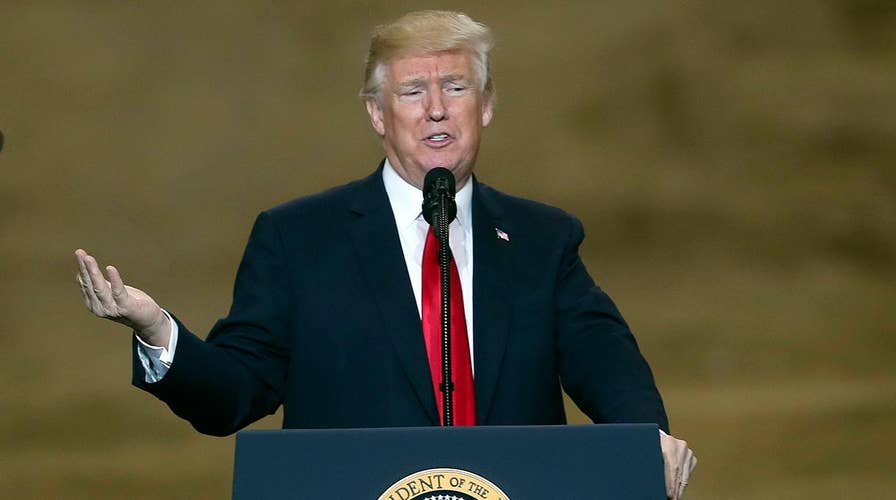Trump goes to war with Democrats, declares DACA dead
How will the border wall get done without a deal? President of the National Border Patrol Council union Brandon Judd comments on 'Fox & Friends First.'
A George W. Bush-appointed federal judge on Tuesday ruled that President Trump's decision to rescind the Deferred Action for Childhood Arrivals program, known as DACA, "was unlawful and must be set aside."
U.S. District Judge John D. Bates in Washington became the third judge to rule against the White House's plans to end the program.
Judges William Alsup and Nicholas Garaufis, both Clinton appointees, had each issued injunctions earlier this year preventing the administration from terminating DACA based on its stated rationale that the Obama-era program was an illegal executive overreach.
Bates' decision does not hold that the Trump administration lacks the authority to rescind DACA. Rather, it holds that the administration's justification for ending the policy is insufficient under the Administrative Procedure Act, which states that courts “shall . . . hold unlawful and set aside agency action . . . found to be . . . arbitrary, capricious, an abuse of discretion, or otherwise not in accordance with law.”
In his ruling, Bates noted a "non-trivial" possibility that the administration would be able to remedy his concerns by providing an alternative rationale.
"Athough the substantive flaws in DACA’s rescission are curable in theory, the Department may face practical obstacles when attempting to remedy them," Bates wrote. "Nonetheless, there remains a 'nontrivial likelihood' that the agency could justify DACA’s rescission on remand."
"[T]here remains a 'nontrivial likelihood' that the agency could justify DACA’s rescission on remand."
But Bates' 60-page ruling was mostly bad news for the White House for now. It requires that immigration officials "accept and process new as well as renewal DACA applications" if the administration "cannot better explain its view that DACA is unlawful" within a 90-day stay period.
DACA allowed immigrants brought to the U.S. illegally as children, known as Dreamers, to stay and work legally under renewable permits. President Trump announced last year that he would end the program started by President Obama.
It was officially rescinded in March, but DHS is continuing to issue renewals because of the previous court orders.
Bates' underlying reasoning -- that Trump's decision to terminate DACA was impermissibly "arbitrary and capricious," lacking even a minimal coherent legal justification -- mirrors Alsup and Garaufis' judgment.
The White House's decision "was predicated primarily on its legal judgment that [DACA] was unlawful," Bates wrote. "That legal judgment was virtually unexplained, however, and so it cannot support the agency's decision."
'ANGEL MOM': DACA PROGRAM IS RIFE WITH FRAUD
But unlike Bates, Garaufis and Alsup had stopped short of ordering that the Trump administration also resume processing new DACA applicants, saying they could not show the same level of harm as existing beneficiaries.
The court "cannot say that plaintiffs have demonstrated either that these individuals would be irreparably harmed without injunctive relief or that the balance of equities favors these individuals to the same extent it favors existing DACA beneficiaries," Garaufis wrote in February.
Bates' decision stays the proceedings until July 27, by which point both parties have to file a joint report "stating whether DHS has issued a new decision rescinding DACA and whether the parties contemplate the need for further proceedings in this case."
In a tweet responding to the ruling, the ACLU called the decision "a huge blow to the Trump administration's bottom line."
The civil rights group added: "DACA is constitutional, deal with it."






